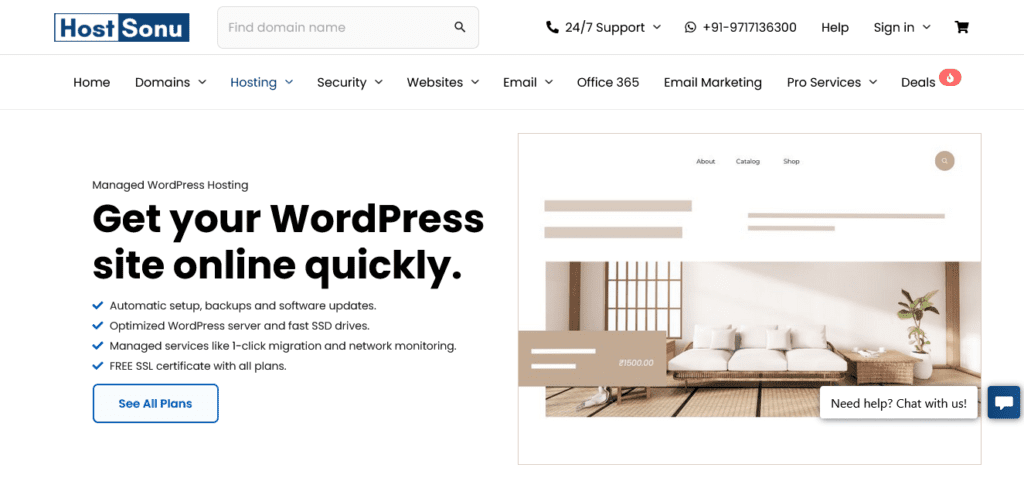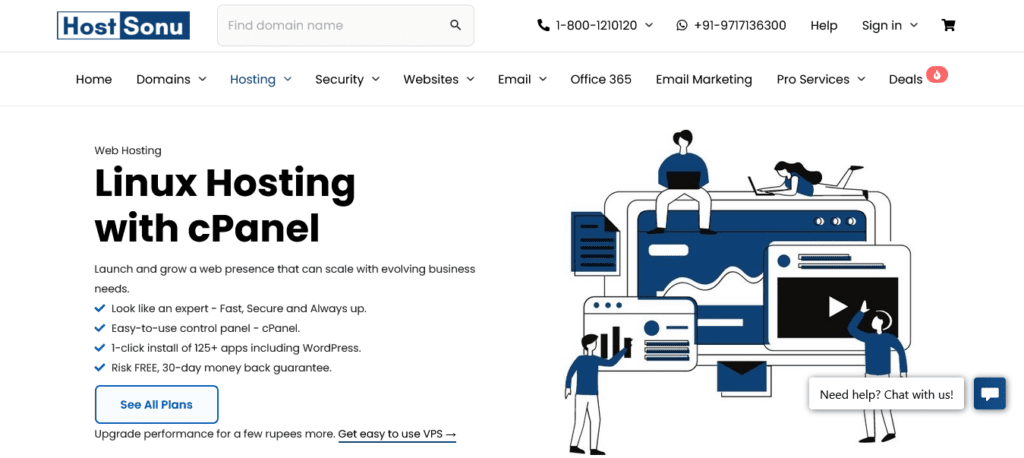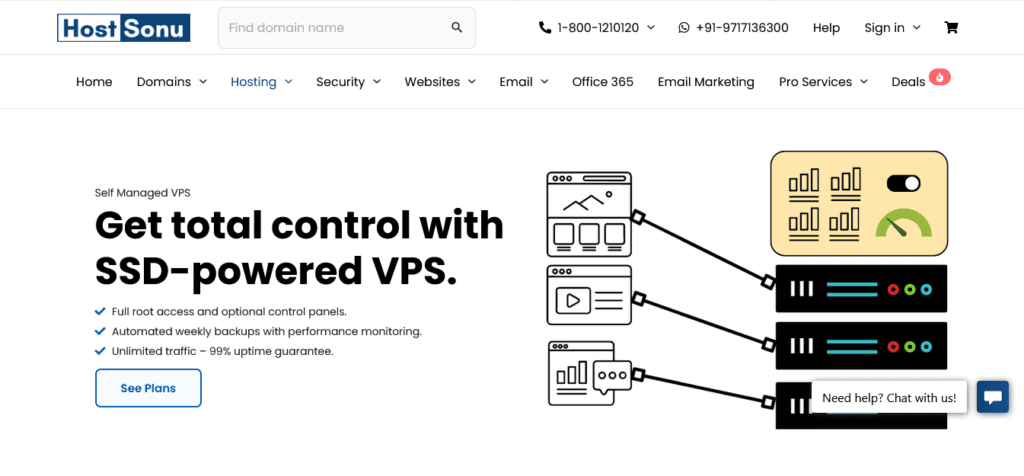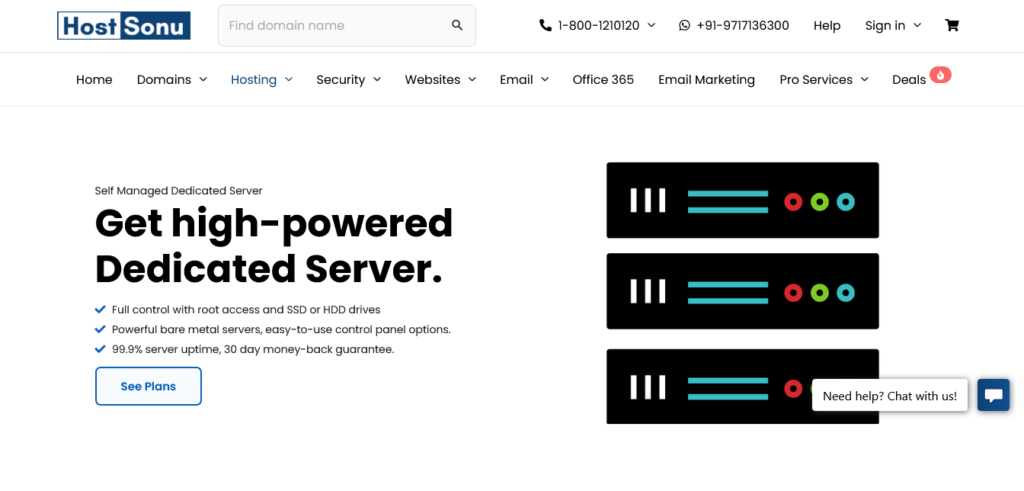Do you know when it’s time to upgrade your website hosting plan? If not, now is the time to start planning. Here top reasons why upgrading is always a good idea.
Website hosting is one of the most important components of a digital business. A slow or downtime website can badly damage your brand and lead to lost customers. So it’s important to choose the right hosting plan for your needs and keep it up-to-date as technology changes.
Top reasons you should upgrade your website hosting plan
Hosting a website is an important step in protecting your business and its data. Here are some top reasons to upgrade your website hosting plan:
1. Increased security
A secure website is your first line of defense against cyberattacks. By upgrading to a higher hosting plan, you’ll be able to improve the security of your website by encrypting your data and adding additional layers of authentication.
2. Faster loading times
A faster website will load pages more quickly, which will give you improved customer satisfaction rates.
3. Easier repairs and upgrades
Thanks to technological advancements, website hosting plans now offer easy repairs and upgrades that can be carried out without downtime or lost business revenue.
4. Greater scalability
As your business grows, a hosting plan with greater scalability will allow you to add more websites without experiencing any lag or slowdown in performance.
5. Additional storage space
You may need more storage space for files or databases that contain sensitive information, such as customer registration forms or contact information. This extra space can be rented from your hosting provider on an optional basis.
6. More customization options
If you’re looking to tailor your website layout specifically for your business, a higher-level hosting plan will offer more customization options than lower plans.
7. Better support
When you upgrade to a higher hosting plan, you’ll also receive better support from your provider should you encounter any problems with your website or database management system (DBMS).
What you should consider upgrading your hosting plan
When you upgrade your hosting plan, you’re making a commitment to better performance and longer-term stability. Upgrade only when absolutely necessary – if you notice any major problems, it’s best to switch website host plan as soon as possible.
Most common upgrades are:
1. CPU power
When your web site gets more traffic, the processor demands increase. A server with insufficient CPU power can become overloaded and slow down overall site performance. If you find that your site is taking longer than it used to for pages to load or for scrolling through menus, upgrading to a higher-powered server may be the answer.
2. RAM
Web sites require a lot of memory (Random Access Memory) in order to run smoothly. Too little RAM can cause website problems such as crashing, lock ups, and difficulties loading pages or graphics. If your web site suddenly starts having trouble running smoothly even after making adequate investments in CPU power and disk space, upgrading to more memory might be the solution.
3. Bandwidth
Web sites today generate large files – images and other media – that need to be quickly sent over the internet from the server to your browser. If your site can’t handle the increased bandwidth demand, users experience delays downloading files, long loading times for pages, or an inability to navigate your website EFFICIENTLY.
What Your Hosting Upgrade Options Are
We will be discussing the different hosting upgrade options that are currently available. We’ll explain how they work and which one is best for you.

Managed WordPress hosting is a type of web hosting service where the host takes care of everything related to managing WordPress websites. These hosts provide a full suite of tools and services to help manage and maintain your website. You don’t need to worry about installing plugins or updating themes, backups, security patches, etc.

Shared web hosting is when you share space on a server with other people. This means that you have access to the same server as everyone else. If you use shared hosting, you won’t have any control over what happens to your site. You’ll have to rely on the host’s support team.

VPS (Virtual Private Server) hosting is similar to shared hosting, except that you get more resources than you would on a shared server. A VPS gives you more power and flexibility than shared hosting.

Dedicated server is when you pay for a specific amount of resources on a server. You own the entire server, and you’re responsible for maintaining it.
How to Start the Upgrade Process
If you’re thinking of upgrading your web hosting plan, there are a few steps you need to take. The most important thing is to consult with your current web host and ask them what the upgrade process will look like and what you’ll need to do in order to make the switch. Your webhost should also be able to provide you with a calendar of when they expect the upgrade to go live, which will give you a good idea of when you’ll need to start preparing for the change.
Once you have an idea of when the upgrade will happen, next you’ll need to determine what type of web hosting plan you want. You have several options available, including shared web hosting plans, managed WordPress hosting plans, VPS hosting plans or dedicated server plans. Each type of plan comes with its own set of advantages and disadvantages. Shared web hosting or managed WordPress hosting plans are good for smaller businesses who don’t need all the bells and whistles that come with VPS hosting plans or dedicated server plans, but they can be more expensive than those options. VPS hosting plans offer access to more resources like root access, dedicated disk space and bandwidth, but they can also be more expensive than shared plans. Dedicated server are perfect for businesses who want more control over their web server and how it’s implemented, but they can be more expensive than either shared web or VPS hosting plans.
Once you’ve decided on what type of hosting plan you want, next step is to decide on the specific features and services that you need. This will include things like server size, number of websites hosted, website design capabilities, email service options, file storage space, and more. Once you’ve determined all the features and services that are necessary for your business, next step is to compare prices and find the best deal available. Finally, once you have selected a plan and Provider, it’s time to actually make the switch!
Finding the Right Fit
Website hosting is the foundation of your online business, so it’s essential to find the right fit for you and it’s not uncommon to choose the cheapest hosting plan you can find when you’re first building your new website. Just remember that after a while, your web hosting plan might begin to show its limits.
The good news? It isn’t hard to upgrade to a new web hosting plan with more choices, resources, and features.
If you have any questions about how to know when it’s time to upgrade your website hosting plan (or how to start the upgrade process)? Don’t hesitate to contact us!


